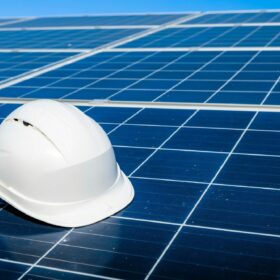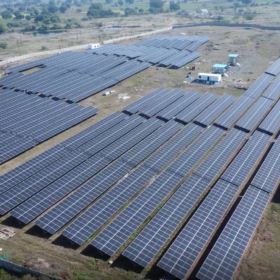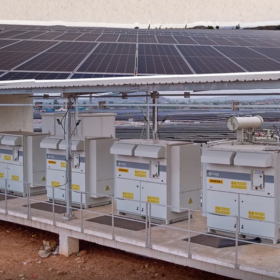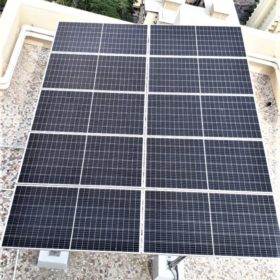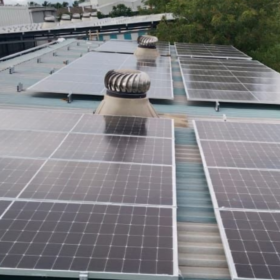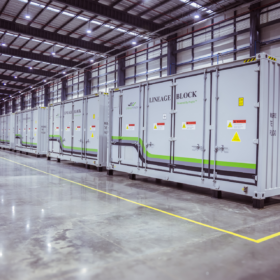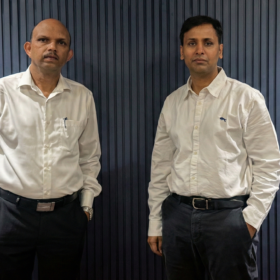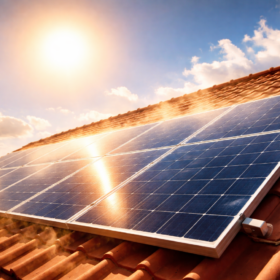Premier Energies buys 51% stake in EPC JV with BA Prerna Renewables
Indian solar manufacturer Premier Energies has completed the acquisition of 104,550 equity shares of HeliosAnthos Energies, securing 51% of the company’s paid-up equity share capital. HeliosAnthos Energies is a joint venture between Premier Energies and BA Prerna Renewables, formed to expand Premier’s presence in the engineering, procurement and construction (EPC) segment of renewable energy projects.
Bondada Engineering Ltd commissions 61.7 MWp of solar in March
Bondada Engineering Ltd has commissioned 61.7 MWp of solar projects for clients including Paradigm IT and Maharashtra State Power Generation Company Ltd (MAHAGENCO) in March.
India expected to install about 42.5 GW of new solar capacity in 2026: JMK Research
India installed around 37.8 GW of solar capacity in CY2025. This comprised about 28.6 GW of new utility-scale solar, a 54.6% increase from 2024, and 7.9 GW of rooftop solar, up 72% year on year. Off-grid additions stood at 1.35 GW, compared to 1.48 GW in 2024.
India installs 7.1 GW of rooftop solar in 2025, up 122% YoY
Residential consumers accounted for 76% of rooftop solar capacity additions in 2025, driven by the PM Surya Ghar: Muft Bijli Yojana program.
What India needs to accelerate sustainable lending post-budget
The next phase of green growth will depend on how quickly capital reaches businesses that are ready to modernize, become energy-efficient, and invest in cleaner production systems. The question is no longer whether sustainable lending will grow, it is how fast we can remove the barriers preventing it from scaling.
From panels to complete energy systems: The evolution of India’s rooftop solar market
Rooftop solar is moving from being a supplementary solution to becoming a central component of India’s energy architecture. The next phase of growth will not be defined by panel installations alone but by how effectively generation is integrated with storage, digital intelligence, and grid infrastructure.
Pace Digitek secures INR 1,587 million telecom battery order from Reliance Industries Ltd
Pace Digitek Ltd’s arm Lineage Power has received an order from Reliance Industries Ltd for the supply of high-capacity lithium-ion battery packs. Under the agreement, Lineage Power will manufacture and supply 50,000 units of 48V 15S1P 314Ah Lithium-Ion battery packs to provide backup power for telecom loads.
Suzlon strengthens leadership to support full-stack renewable expansion
Suzlon has formed a Group Executive Council (GEC), elevated JP Chalasani to the GEC, and appointed a new group CEO to drive its business transformation from a wind energy solutions provider to a full-stack renewable energy solutions conglomerate.
Hycosys raises $1 million from MGF Kavachh to develop hydrogen-compatible micro gas turbines
The seed round will aid in accelerating system integration, pilot deployments, and fuel the commercialisation roadmap of the Hycosys’ indigenous hydrogen-compatible micro gas turbine platform with applications across distributed power, aerospace and mobility.
Global-warming-induced degradation could raise rooftop solar LCOE by up to 20%
A global study finds climate change will sharply increase high-temperature risks, accelerate degradation, and raise costs for rooftop PV, with economically disadvantaged regions hit hardest. Researchers warn current IEC standards underestimate future risks, urging urgent updates to avoid stranded assets and rising electricity costs.
